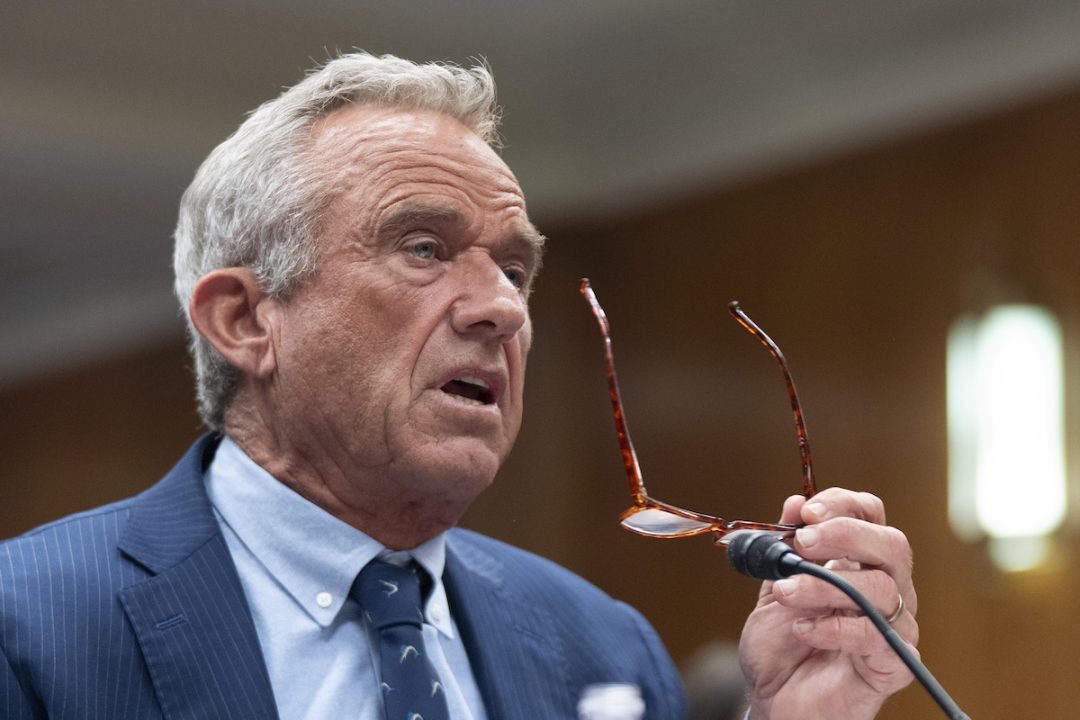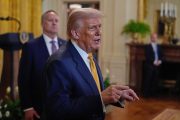
The head of Health and Human Services (HHS) just did something that has vindicated every Democrat who fought tooth and nail to prevent his confirmation. On Monday, HHS Secretary Robert F. Kennedy Jr. ousted all 17 members of the Advisory Committee for Immunization Practices (ACIP), 13 of whom were vaccine cheerleaders appointed by the Biden administration in 2024.
Kennedy announced the move in a Wall Street Journal op-ed on Monday. He said the decision was intended to restore trust in America’s public health institutions:
The committee has been plagued with persistent conflicts of interest and has become little more than a rubber stamp for any vaccine. It has never recommended against a vaccine — even those later withdrawn for safety reasons. It has failed to scrutinize vaccine products given to babies and pregnant women. To make matters worse, the groups that inform ACIP meet behind closed doors, violating the legal and ethical principle of transparency crucial to maintaining public trust.
ACIP is at the heart of U.S. vaccine policy. It makes recommendations that almost always result in policies promoted by the Centers for Disease Control and Prevention (CDC). The committee determines which vaccines people should take and how often, suggestions CDC critics say are usually rubber-stamped. As already noted, a majority of the committee members were appointed late in the game by the previous administration.
Conflicts of Interest
It turns out that nine of those members had either taken money from Pharma or worked with government agencies to push the Covid-19, RSV (respiratory syncytial virus), or HPV (human papillomavirus) vaccine.
The secretary cited multiple examples of known skullduggery tied to the committee. He brought up a congressional investigation (results were released in 2000) concluding that the committee’s conflict-of-interest rules were “weak to nonexistent.” Committee members regularly pushed vaccine products they were financially vested in. The investigation brought to light that:
Members of the CDC’s Vaccine Advisory Committee get money from vaccine manufacturers. Relationships have included: sharing a vaccine patent; owning stock in a vaccine company; payments for research; getting money to monitor manufacturer vaccine tests; and funding academic departments.
The summary of the report even includes comments from a congressman who said he believed vaccines caused his grandson’s autism. According to then-Rep. Dan Burton (R-Ind.):
This presents a real paradox when the CDC routinely allows scientists with blatant conflicts of interest to serve on influential advisory committees that make recommendations on new vaccines, as well as policy matters.
The debate over whether vaccines cause autism has become especially heated recently. In fact, Kennedy has implied exactly that. He has tried to temper his hysterical detractors with the less-controversial view that sufficient, trustworthy research should be conducted to put this debate to rest once and for all.
Inspector General’s Report
In his Journal op-ed, Kennedy also mentioned how four of eight committee members who approved the RotaShield vaccine, which was later pulled because of severe side effects, had financial connections to companies that created rotavirus vaccines. He pointed to a 2009 government report proving this.
That report also revealed that 97 percent of committee members never completed their conflict-of-interest forms. The report, produced by the Office of Inspector General of the Department of Health and Human Services, is indeed concerning. The inspector general also found that in 2007 the “CDC did not ensure that financial disclosure forms were complete” for nearly every special government employee (a reference to committee members); that the CDC didn’t make sure that 41 percent of special government employees received ethics training; that 15 percent of committee members did not comply with ethics requirements. Stunningly, the CDC did nothing to address 64 percent of the conflicts of interests.
More Vaccines, More Adverse Effects
ACIP becomes especially suspect when you look at the increase in recommended vaccines for children. In 1962, five doses of three vaccines were recommended. By 1989, the schedule had ballooned to 24 doses of 11 vaccines. It just so happens this came about after Congress passed in 1986 the National Childhood Vaccine Injury Act, granting vaccine makers liability immunity from any vaccine recommended by the CDC. The reason for this law? Vaccine manufacturers said they couldn’t afford to keep compensating people for the injuries and deaths their products were causing.
As noted above, the number of recommended vaccine doses in the 1980s had increased fivefold since the 1970s. Today that number has tripled, to include 77 doses of 61 vaccines.
Kennedy suspects this may have something to with the exploding cases of autism, asthma, speech disorders, allergies, and other sicknesses. Therefore, “The public must know that unbiased science guides the recommendations from our health agencies.” In a tweet on Tuesday, Kennedy said he will be “tweeting examples of the historical corruption at ACIP to help the public understand why this clean sweep was necessary.”
Backlash From Medical Establishment
As expected, Kennedy’s brazen order has prompted backlash. Members of the House of Delegates of the American Medical Association (AMA), the nation’s largest doctors group, published a resolution on Tuesday that called for the secretary to immediately reverse his decision and for a congressional investigation into the matter. Bruce A. Scott, president of the AMA, said in a statement, “Today’s action to remove the 17 sitting members of ACIP undermines … trust and upends a transparent process that has saved countless lives.”
Interestingly, not every delegate agrees the AMA should’ve recommended congressional involvement. Dr. John Corker, a delegate from Ohio, told MedPage Today, “We’ll be asking for an investigation that’s unlikely to reveal any information that’s not publicly available.”
The American Academy of Pediatrics (AAP) was not happy, either. They issued a statement saying, “We are witnessing an escalating effort by the Administration to silence independent medical expertise and stoke distrust in lifesaving vaccines.” If the AAP genuinely wants to rebuild trust in vaccines, they would reconsider their aversion to change. A Gallup poll from late 2024 shows that 69 percent of parents think it’s important to vaccinate their children, a 25-point drop from the 94 percent of 2001.
Criticism From Congress
And, of course, Kennedy’s bold move has drawn fire from a number of legislators who chimed in with their variations of outrage.
Bernie Sanders (I-Vt.), the proudly socialist senator whom Kennedy has accused of being in the pocket of Pharma, said in a press release:
At a time when we should be strengthening trust in science and expanding access to health care, this administration is doing the exact opposite. This is a continuation of Trump and Kennedy’s dangerous war on science. It cannot stand.
Chuck Schumer (D-N.Y.), who bought hook, line, and sinker into the erroneous narrative of the Black Lives Matter terrorists, lobbed the C-word when criticizing Kennedy:
Firing experts that have spent their entire lives protecting kids from deadly disease is not reform — it’s reckless, radical, and rooted in conspiracy, not science.
Then there’s Lisa Murkowski, Alaska’s senator who still pretends to be a Republican. She said:
I am concerned that his effort to “reestablish credibility and trust”, I’m not certain by dismissing everybody as he has done that he will achieve the goal that he’s seeking, which I regret.
Senator Bill Cassidy, a Louisiana Republican and a doctor, took more of wait-and-see approach, saying:
Of course, now the fear is that the ACIP will be filled up with people who know nothing about vaccines except suspicion. I’ve just spoken with Secretary Kennedy, and I’ll continue to talk with him to ensure this is not the case.
Kennedy has indicated that the process of refilling the spots on the ACIP will be fully transparent. He said on Tuesday that he will be announcing on social media every new member coming onto the committee, and claimed that the people he’s bringing on board will not be “ideological anti-vaxxers,” but “highly credentialed physicians and scientists who will make extremely consequential public health determinations by applying evidence-based decision-making with objectivity and common sense.”
He also said the new members won’t directly work for the vaccine industry.





